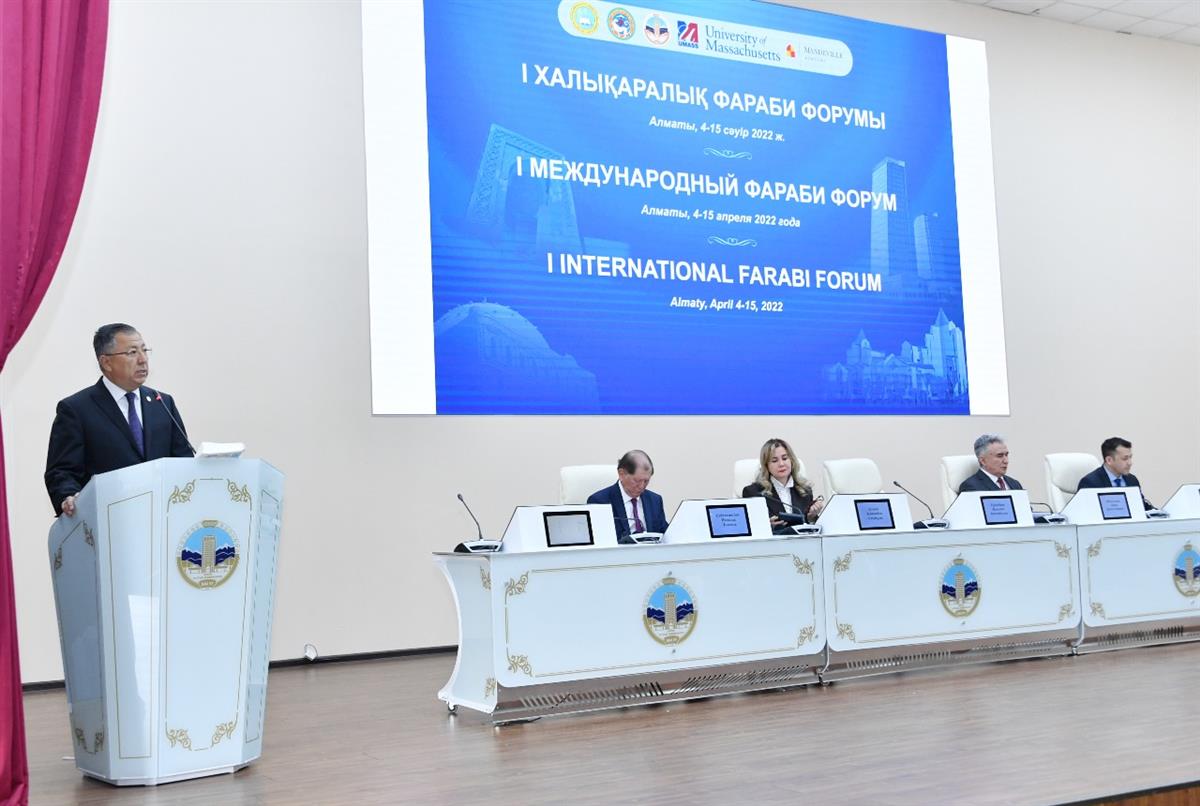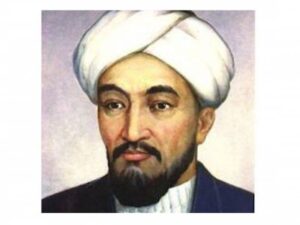NUR-SULTAN – The Al-Farabi Kazakh National University (KazNU) in Almaty hosted the First International Farabi Forum on April 4 gathering Kazakh and foreign scientists to address existing problems in the state and in society, reports the university’s press service. The forum will last through April 15.

KazNU Rector Zhanseit Tuimebayev at the opening ceremony of the forum. Photo credit: kaznu.kz
The forum program features international scientific events that discuss the themes of the convergence of traditional and digital education, cultural tourism in Kazakhstan, current issues in medicine and public health, and the implementation of the Sustainable Development Goals, among other topics.
The significance of Al-Farabi’s wisdom weaves steadily through the forum themes. The forum invites participants to find solutions for the future by re-evaluating the past and promoting the legacy of the great Kazakh thinker.

Abu Nasr Al-Farabi
Al-Farabi was an outstanding medieval philosopher born on the territory of modern Kazakhstan. Over centuries, his works on philosophy, logic, music, and politics involved readers in dynamic discussions and gave an insight into cultural, religious, and intellectual traditions.
His reflections on the ideal state and society remain relevant today. Al-Farabi’s translations of ancient Greek philosophers served as a bridge between East and West.
“Al-Farabi is not only a great thinker but also a scientist on a planetary level, who contributed to the spiritual growth of mankind. The historical mission of today’s forum is to expand the horizons of young people through the teachings of Farabi, to develop new areas of Farabi studies by integrating historical and modern values, a comprehensive, sectoral discussion of the teachings of Farabi,” said KazNU Rector Zhanseit Tuimebayev at the opening ceremony of the forum.
Abror Fatkhullayev, Uzbekistan’s Consul-General in Kazakhstan, said that Al-Farabi’s legacy spreads beyond the Central Asian region. “Al-Farabi’s works had a direct impact on the worldview and science in Europe during the Middle Ages and the Renaissance. His teachings about peace, humanism, and justice are especially relevant today when the world faces new challenges and threats,” he added.
The participants of the opening ceremony laid flowers at the Al-Farabi monument, visited an exhibition of books written by Farabi scholars in the Al-Farabi library, and attended the art exhibition “Traditional Values of the Turkic Peoples.”
2020 was declared the year of Al-Farabi at the level of UNESCO on the occasion of the 1150th anniversary of the birth of Al-Farabi and the special date was widely celebrated in Kazakhstan.

